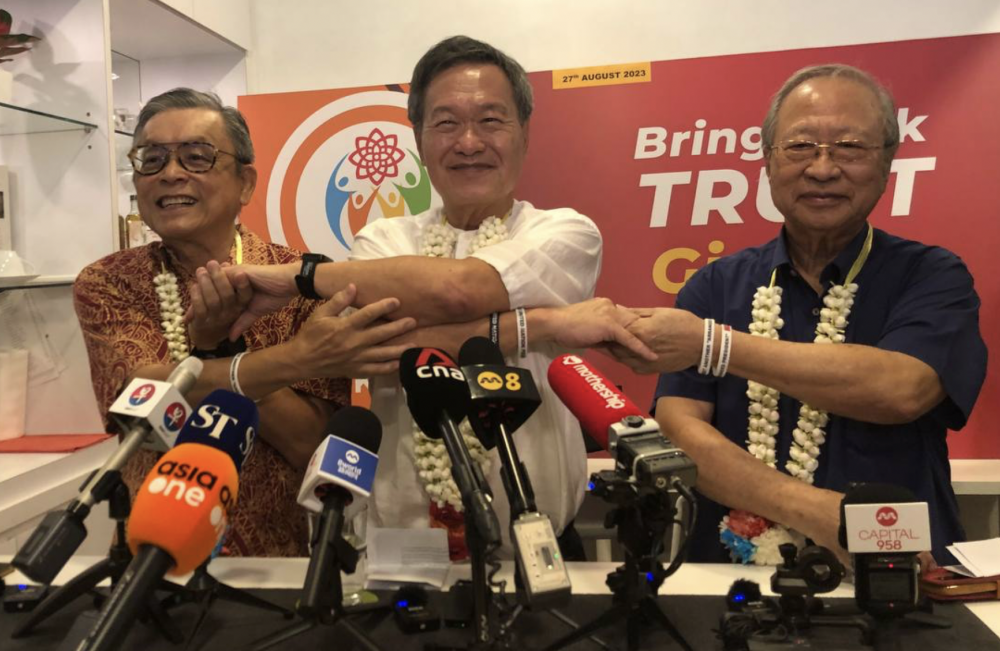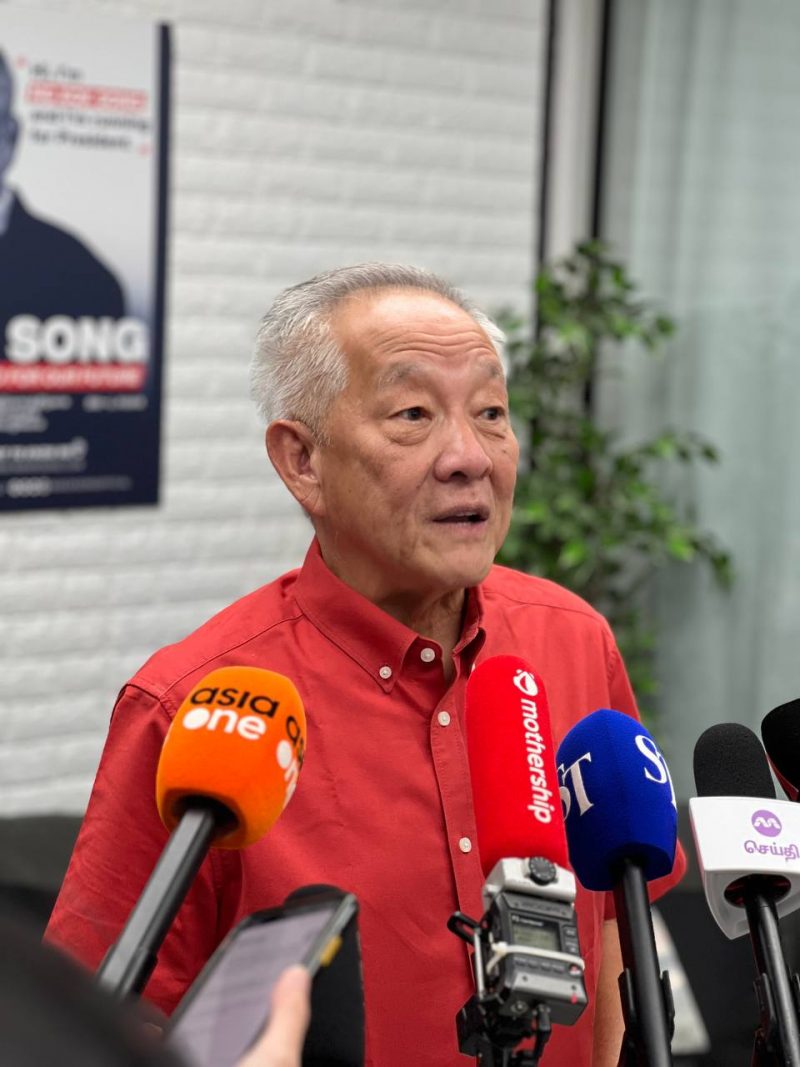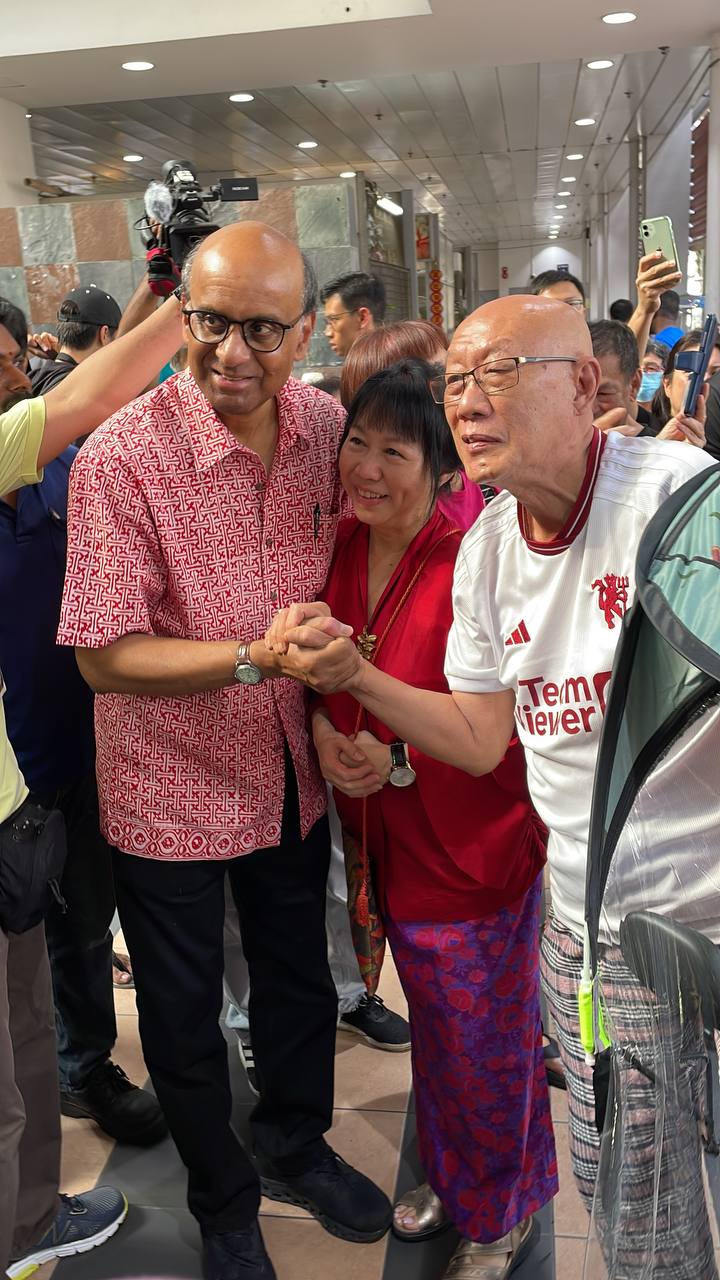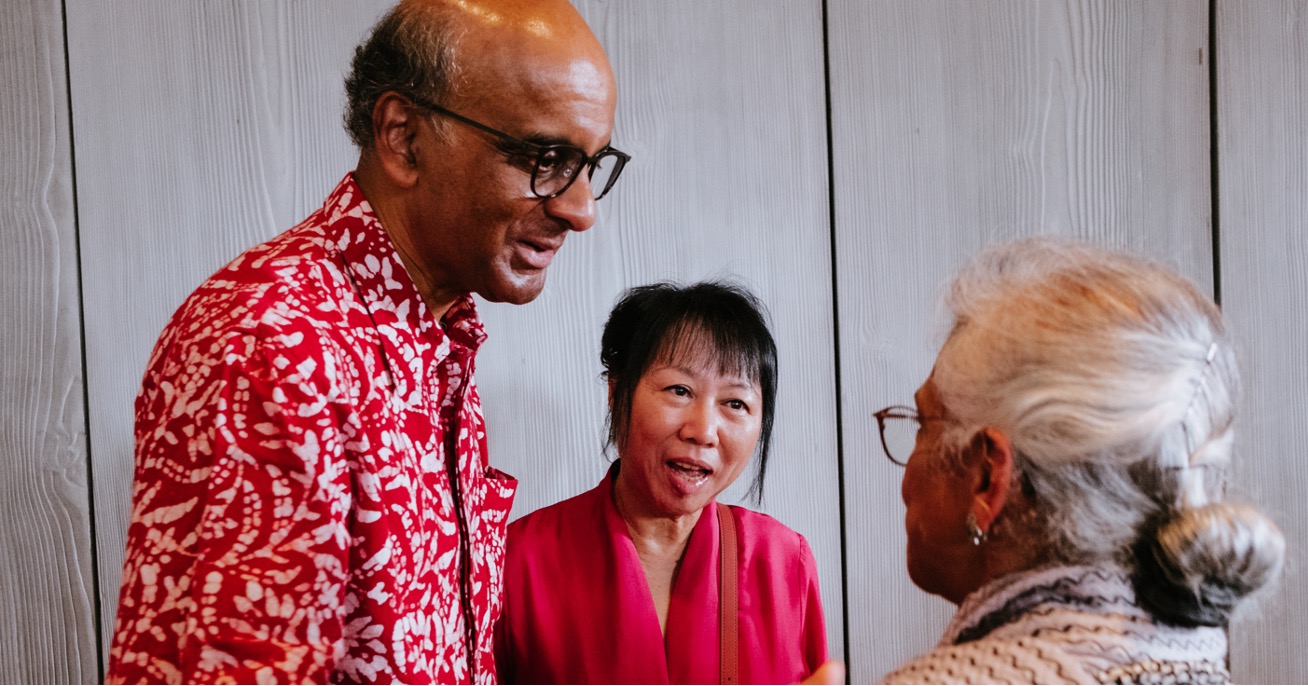Well, how many of us expected that result?
But enough about me, this night belongs to Tharman Shanmugaratnam, the president-elect of Singapore, literally the most popular elected president in our short island story.
Just how did it happen? It comes down to three possibilities: Tharman himself, his opponents, and perhaps the electorate signalling what they would like from Singapore's future.
Biggest presidential election victory in Singapore history
Tharman's victory towered over all the others since Singapore started having elected presidents.
Ong Teng Cheong secured 58.69 per cent of the vote in 1993, and Tony Tan got 35.2 per cent in 2011. SR Nathan and Halimah Yacob became president after walkover victories.
But with a whopping 70.04 per cent, Tharman stands head and shoulders above the rest, the undisputed champ of presidential elections.
1st reason - Tharman the hard carry
The first instinct may be to simply point to Tharman's natural abilities as a politician.
After all, this is the man about whom many "hard carry" memes were made, following his sizeable victories in Jurong GRC in successive General Elections.
Ever since he made his political debut in the 2001 GE, Tharman has either walked over to victory or secured a win with more than 70 per cent of the vote, with the sole exception of 2011. Even then, his team got nearly 67 per cent.
In 2020, Tharman and team stormed to a Jurong victory of 74.6 per cent of the vote, higher than the his party's overall vote share of 61.24 per cent. Granted, Tharman's opponents in Jurong GRC were much weaker opponents and not the Workers' Party.
So maybe this huge victory in Sep. 2023 is down to Tharman's myriad strengths as a campaigner and communicator, his wit, his charisma, and sharp mind.
The media appearances of his wife Jane Ittogi, a constant, cheerful presence on the campaign trail, undoubtedly helped too.
The "October Surprise"
Even his mettle in adversity was tested. U.S. politicians talk of the October Surprise, a nasty and potentially damaging media story, usually personal, that gets released close to the November elections.
Team Tharman faced their own October Surprise when rumours surfaced about his son Akilan's role in the Ministry of Finance (MOF).
Such pitfalls are rare but not unheard of in Singapore politics. Older Singaporeans will recall the similarity to Tony Tan's refutation of false rumours related to his son's national service. That was also in a presidential election year.
Here, both MOF and the Public Service Commission Secretariat clarified that there was no conflict of interest involving the previous work done by Tharman's son. In fact, he was rotated to prevent any potential conflict of interest with regards to the election.
Tharman did not shy away from addressing the issue, calling the rumours "false and baseless." And so our version of an October Surprise fizzled out.
2nd reason - The competition
Or maybe it wasn't all down to Tharman. As long as there's more than one competitor, one must also consider the strength of the competition.
Tharman had two opponents, one a blast from the past, the other a bolt from the blue.
Tan Kin Lian - The Fighter
Tan Kin Lian, who had competed in the 2011 presidential election, was looking to improve upon a performance that netted him just under 5 per cent of the vote.
At first seemingly reluctant to even get involved, even saying he would have stood down had George Goh qualified, he soon launched the ship of his campaign with gusto. But there were icebergs looming in his path.
His controversial and offensive social media comments, previously overlooked, came into sharp focus as Tan re-entered the spotlight. His assertions that the media coverage on his comments were "smears" or "malicious attacks" were dubious at best. Tan did not seem to realise that a presidential candidate comes under greater scrutiny from the public.
Tan offered an apology on Nomination Day and again in his final broadcast speech. Perhaps it was too late.
The Captain Planet of Singapore politics
Tan Jee Say, his erstwhile 2011 opponent and founder of the now-defunct SingFirst party, served as his proposer. Five days later, another 2011 alumn, Tan Cheng Bock threw his weight behind Tan's bid.
The chairman of the Progress Singapore Party (PSP) made sure to emphasise he was doing so in a personal capacity. Still, it made for an impressive visual -- the three defeated candidates of 2011 setting aside their differences to join forces.
 Photo by Denise Tan.
Photo by Denise Tan.
But it may also have irrevocably linked Tan's candidacy, for what is meant to be a non-partisan office, to Singaporean partisan politics.
Personalities like Lim Tean (leader of People's Voice), Chee Soon Juan (Secretary-General of the Singapore Democratic Party) and even Desmond Lim (Singapore Democratic Alliance chief) all expressed support, albeit stressing this was done in their personal capacities. The absence of the Workers' Party was conspicuous.
So Tan was cast into the role of some kind of opposition Captain Planet. By all your powers combined -- personally, not politically, of course.
In the end, Tan increased his vote share to 13.88 per cent of the vote, avoiding a deposit loss by inches. Perhaps we are beginning to probe the limits of how far such a campaign can take you.
Ng Kok Song - The Rock
Ng Kok Song's campaign will probably be studied for years, for its contrasts as well as surprises.
His stated reason for diving into the fray? To prevent another walkover. His appeal? Being the "true" non-partisan candidate, with Tharman recently serving as a Cabinet minister and former PAP member Tan's links to notable opposition political figures (in their personal capacities).
His strategy? Focusing on social media instead of traditional methods like putting up banners and posters. Cute cat videos certainly helped.
Ng seemed to be staking out the middle ground of the election, appealing to the swing voter who may not want to vote for a former PAP minister, but was also leery of Tan's freewheeling campaign. Ng himself emphasised his reliability, as a man who can be trusted to safeguard Singapore's reserves.
Moments of drama
Strangely enough, Ng's campaign was also responsible for moments of high drama. A heckler on a bicycle barged his way into the crowd the first time he held a meet-and-greet session and hurled insults at him.
Luckily, Ng was not hurt, and seemed barely even fazed, continuing to campaign in public.
On the very same day, Ng fired a broadside at Tharman over comments he made during the CNA live forum. The forum itself was soporific, the fallout was not. Ng in particular objected to Tharman's reference to a fund management company, saying it was a clear reference to himself.
Tharman then clarified that he was misquoted and he was in fact trying to make the opposite point. In response, Ng said in the last day of the campaign that he did not want to "reopen the subject" and that he and Tharman were "good friends". And so ended one of the few instances of a candidate sniping at another in this election.
Ng can justifiably be proud of the campaign he ran. A first-timer, he managed to place second, ahead of Tan. He also kept his deposit. And he did succeed in at least one thing -- making sure there was no walkover.
But ultimately, the name Ng Kok Song was completely unknown to most Singaporeans just two months ago. It is not easy to win an election when the lifeblood of a campaign, name recognition among the voters, is essentially starting from zero.
 Photo by Ilyda Chua.
Photo by Ilyda Chua.
3rd reason - What Singaporeans want
But maybe there is a brighter, more idealistic reason why Tharman's win was "big league". Cast your gaze upon the final round of presidential broadcast messages.
Tan's message was one of pugnaciousness: "As a leader, you must not be afraid to exercise independent thinking and not be afraid to stand alone for what is right."
Ng's message was one of prudence: "I am the only candidate in this election who is non-partisan. More than that, I have the domain knowledge and experience to protect our reserves."
Tharman's message was one of positivity: "To help them uplift themselves. And to uplift all our spirits. That is my purpose in life."
Throughout a rough-and-tumble campaign, Tharman's message remained mostly consistent. He spoke of building bridges, finding common ground, uplifting those who are disadvantaged.
He spoke of unifying Singapore through a "culture of respect", with "respect" even being his official campaign slogan. In his "victory" speech following the sample count, Tharman took time to thank his fellow candidates, and mention "those who did not vote for me."
With culture wars on the rise and tribalism taking root, Tharman's pitch that you don't have to face a harsh world alone may have resonated with the voters. In a cold world, one's face turns towards the sun.
 Photo by Daras Singh.
Photo by Daras Singh.
Progressive boost
We may not get another chance, so let's just say it. Anyone looking to learn from the Tharman wave should consider the progressive hope he represents.
Throughout his career, Tharman has acquired something of a maverick reputation among his peers. While campaigning, he even saw fit to reference a "past disagreement" with the government.
Despite having been a Cabinet minister in the room where it happens, Tharman is seen as one of the more left-leaning members, if not the most, of his former party.
Of his motivation for entering politics, he said: "I've always had a tilt in my views, because I wanted to serve Singaporeans who are from lower incomes, and who've had less chances in life."
Tharman may not be the Great Post-Neoliberal Hope, as economist Donald Low pointed out. But a big win for Tharman would be a significant boost for the few progressives in the ruling party, Low added.
While acknowledging that the President has "few substantive powers", Low said:
"But we shouldn’t underestimate the power of the message that the electorate sends by giving the most left-leaning former senior member of the PAP, one who (I think) has been mostly sidelined in recent years, a big win."
Who knows?
We began with a question: "Why did Tharman win so big?"
Several reasons came to mind. Take your pick. But while I called it months ago, I was never really 100 per cent sure, and certainly not by the margin of the victory. A lifetime has occurred between then and now. And now Tharman Shanmugaratnam is our president-elect, and the Singapore we live in today is different from yesterday. Who knows why?
Or maybe Singaporeans just really, really love pineapples.
Read more PE2023 perspectives from this writer:
Top image by Andrew Koay.
If you like what you read, follow us on Facebook, Instagram, Twitter and Telegram to get the latest updates.



